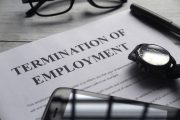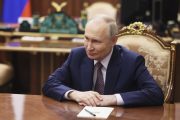
Six people have been killed along with the three terrorists who carried out the deadly attack in London late Saturday night, according to police. The attack — happening one week into Ramadan and less than two weeks after a deadly suicide bomb attack in Manchester — may indicate that more attacks are likely.
Early reports indicated that there may have been attacks at three sites in London. Police have now said that third incident at Vauxhall was unrelated to the two attacks at London Bridge and nearby Borough Market.
At 10:08 p.m. London time, a white van driven by three Muslim men drove across London Bridge and veered off the road, striking pedestrians. Witnesses, including BBC reporter Holly Jones, reported that the driver deliberately targeted groups of people. While continuing to run pedestrians down, the van drove to Borough Market.
The three men — armed with hunting knives 10-12 inches long — jumped from the van shouting, “This is for Allah!” and began stabbing and slashing people, apparently choosing their victims randomly. Between the van attack and the stabbings, six victims were killed and at least another 20 wounded, many critically — including a British Transport Police officer who was initially reported to have been killed. That officer suffered cuts and stabs to the hands, arms, legs, and face.
Armed police officers arrived on the scene at 10:16 p.m. and confronted the men who all appeared to be wearing explosive suicide vests. All three men were shot and killed by police. The vests were examined and found to be fake.
The whole attack lasted eight minutes.
In the hours after the attacks, as officials were piecing together what happened and ruling out the third incident in Vauxhall, police evacuated some areas, telling people to “run, hide, and tell.” Other areas were condoned off and people were not allowed to leave.
After a period of sorting things out — during which the attacks were classified as a “potential act of terrorism,” police announced at 12:25 a.m. Sunday that the attacks were “terrorist incidents.”
Coming so soon after the suicide bombing in Manchester — which was carried out at the end of a concert attended mostly by young teenage girls and resulted in the death of twenty-two victims and injured another 116 — this attack has left London and the whole of England shaken. Beyond England, the whole of the West is on notice that more attacks are likely during the Muslim month of Ramadan which began on May 26/27 and runs until June 24/25 (the Islamic calendar is a lunar calendar, so each day begins at sundown).
As the Telegraph reported, the Islamic State (ISIS/ISIL) ratcheted up the normal Jihad rhetoric in the immediate wake of the Manchester attack. In a YouTube video, ISIS declared all out war on the West. From that article:
“Muslim brothers in Europe who can’t reach the Islamic State lands, attack them in their homes, their markets, their roads and their forums,” the jihadist group said in a message entitled Where are the lions of war? and published on YouTube.
And:
Defending themselves after the suicide attack on Manchester Arena, which left 22 mostly children and teenagers dead, the group said: “Do not despise the work. Your targeting of the so-called innocents and civilians is beloved by us and the most effective, so go forth and may you get a great reward or martyrdom in Ramadan.”
Considering that Ramadan has become more violent and more bloody in recent years, it is no surprise that in the wake of these new attacks in England, New York Gov. Andrew Cuomo has ordered increased security for all “high-profile” locations in the state, including bridges, tunnels, airports, and mass-transit systems.
What remains to be seen is whether enough people in the West will finally demand that their leaders put an end to an open-door policy of immigration from nations known to be hotbeds of terrorism, recognizing that the current policy is an invitation for more attacks like those seen in recent months. The way to help the people in the Middle East is not to import the Middle East (and its problems) to the West but to end the Middle Eastern interventionist policies that have, in the name of fighting terrorism, fanned the flames of terrorism and brought on the refugee crisis. If the recent attacks in London and Manchester underscore anything for Americans, it is that President Trump’s court-blocked travel ban to curtail the flow of people from those nations into America is needed more than many would have thought.
Photo: AP Images





